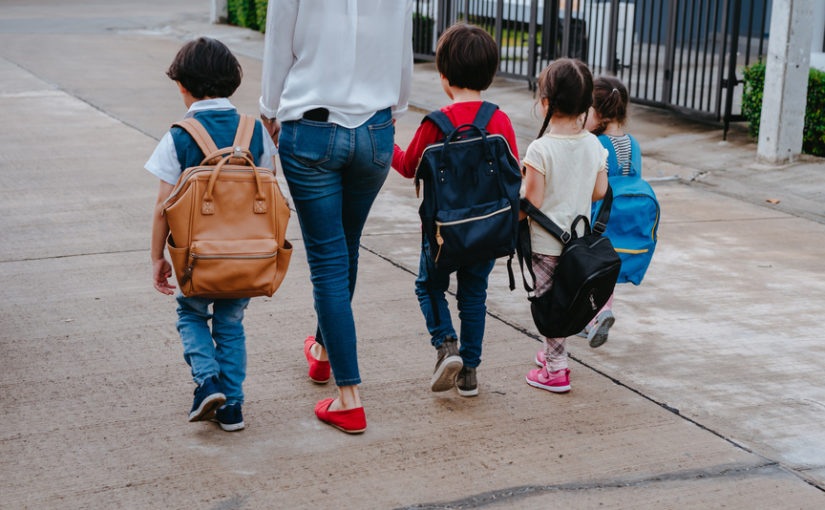Now that September is well underway, your child might already be spending their mornings or afternoons in their preschool classroom. However, adjusting to preschool can be tough for many kids (and their parents!), even after a few weeks’ time. Whether your child recently began school or you’re looking ahead to next year, you may have concerns about their adjustment to the new changes. These transitional tips can be a good place to start.
Visit Beforehand
Before your local preschool program actually starts, you should take the time to visit the facility and get to know the teachers. A little bit of familiarity can make a world of difference in your child’s experience during those first few days. Your child can get to become acquainted with the activities and the schedule while still having you close by for their comfort. Then, by the time class is actually ready to begin, they’ll feel more equipped to make the transition even without your presence.
Shift Routines Gradually
School comes with a whole new set of routines. This new schedule will likely impact when they (and you) get up in the mornings, the breakfast regimen, how long they’ll spend in the car, and what kinds of activities they’ll do during the day. It may not seem like a big change to you as a parent, but remember that you’ve had to adjust to new routines throughout your adult life. You’re used to it in a way that your child is not. That’s why you shouldn’t expect your child to be at their best if you wait until the last minute to implement these changes. By gradually switching up their routine to accommodate these shifts, their transition will be much smoother. This gives you the opportunity to establish new traditions, make the most of your time together, and take all the changes in stride.
Talk to the Teacher
If your child tends to be quite attached to their family members or dislikes changes in their routine, it may behoove you to keep the lines of communication open with their preschool teacher. Although 68% of four-year-olds were enrolled in preprimary programs in 2013, that doesn’t mean that all toddlers are able to roll with the punches right away. You may want to talk with staff members before and after classes begin to ensure your child is adjusting and discuss strategies to ease their transition on a continual basis. If you observe behavior that makes you believe your child isn’t adjusting as well as they might, don’t hesitate to talk to their teacher and assess what steps everyone can take to make some more progress.
Be Patient and Positive
Remember that both inside and outside the preschool classroom, changes don’t happen right away. Don’t be too quick to come to the conclusion that your child isn’t ready for the preschool classroom or that you’ve chosen the wrong school. These are big adjustments for little ones who don’t have a lot of life experience. Even when you’re armed with all of the best back to school tips, these transitions do take time. Try to remind yourself of that and maintain a positive attitude throughout. Every child will learn and adjust at their own pace; practice patience and don’t get discouraged if your child is having a tough time with the transition. Eventually, your child will flourish — especially if you maintain an open mind and continue to encourage them throughout their educational journey.
Although this time of year is full of the excitement that comes with new beginnings, all these changes can be overwhelming for many preschoolers. If you follow these tips and make an effort to ease their transition into the preschool classroom, you’ll set them up for success.



